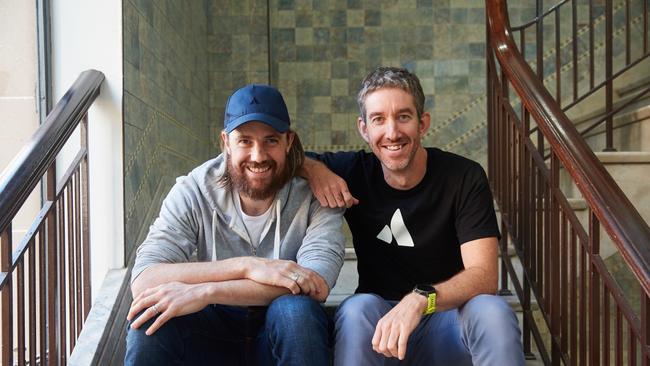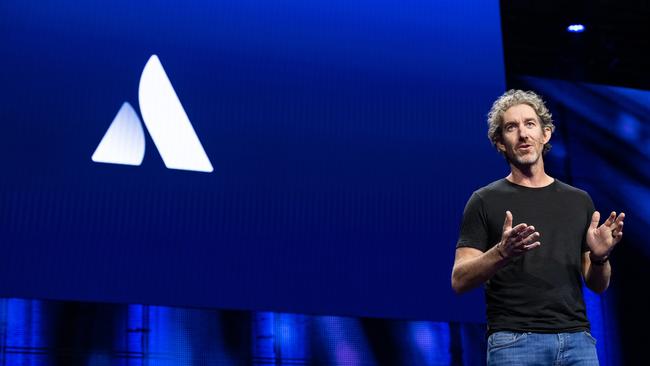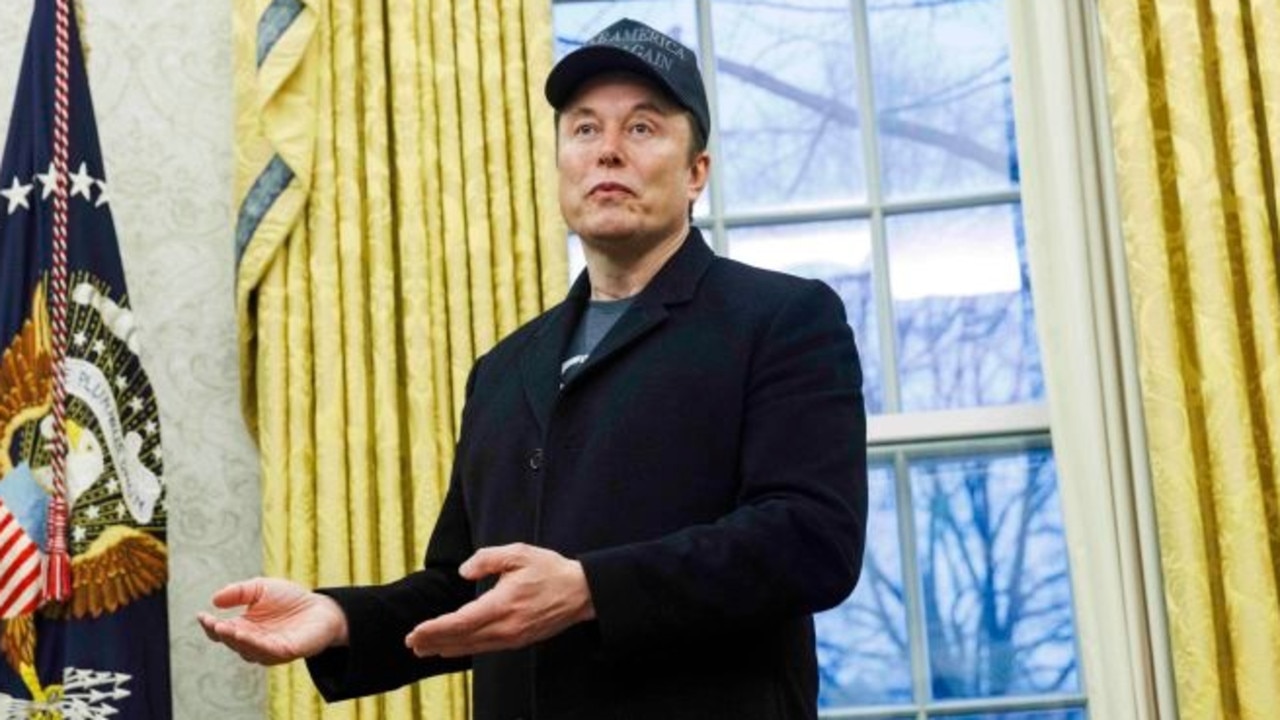‘Hard yakka’: Atlassian shares soar on strong results
The software giant’s shares are at their highest point in nearly 12 months, adding billions to the net worth of co-founders Mike Cannon-Brookes and Scott Farquhar.

Shares in Australian software giant Atlassian soared after it posted fourth-quarter results that beat Wall Street expectations, adding billions to the paper worth of rich list co-founders Scott Farquhar and Mike Cannon-Brookes.
Atlassian shares – listed on the Nasdaq – were up 22.9 per cent in after-hours trading to $US208.50, their highest since October last year, with the company’s bet on nascent AI and cloud computing technologies, as well as what Mr Cannon-Brookes and Mr Farquhar described as “hard yakka” paying dividends.
For the fourth quarter it posted a net loss of $US59m, or 23 cents per share, narrowed from a net loss of $US90.6m a year earlier. Revenue was up 24 per cent to $US939m compared to $US760m a year earlier.
The company said it expected first-quarter sales of between $US950m to $US970m, compared to FactSet analyst forecasts of $US954m.
“We knew we’d be putting in the hard yakka this year, and that’s exactly what we’ve done,” co-founders Mike Cannon-Brookes and Scott Farquhar said in a letter to shareholders.
“Atlassian ended FY23 with over 260,000 total customers and generated over $US3.5bn in revenue in the face of a challenging economy. And importantly, our three biggest bets are paying off, further strengthening our conviction in our strategy.”

Atlassian is now growing its headcount, after shedding around 5 per cent of their total headcount earlier this year, a move they said at the time was about rebalancing its teams rather than reacting to the tech downturn plaguing software companies and their valuations.
The executives said on Friday forays in cloud computing, enterprise and IT service management were all driving revenue growth, and that its continued investment in R&D had enabled it to take advantage of the next generation of AI technologies.
The company now has 262,337 customers, it said its letter to shareholders, slightly below consensus analyst expectations of 264,780 customers.
“We took advantage of mind-blowing developments in AI to bring generative capabilities into our products and unleash even more of our customers’ potential. And we responded to a rapidly shifting environment by rebalancing our teams so we can meet our customers’ needs faster,” the executives wrote.
“In other words, we did what we said we were going to do: play offence.
“There are massive opportunities in cloud, enterprise, and ITSM [IT service management] that will drive Atlassian’s growth for years to come. Plus, tech’s labour market is such right now that we’re able to hire amazing talent who might not otherwise be available.

“These moves set Atlassian up to win over the long term and reflect our enduring confidence in our business model, our strategy, and our team. We aren’t afraid to make tough trade-offs in support of durable growth that others shy away from, even when it may be uncomfortable in the short term.”
It announced its chief revenue officer, Cameron Deatsch, will leave the company at the end of December 2023 after nearly 11 years.
Two of Australia’s wealthiest people, Mike Cannon-Brookes and Scott Farquhar had seen more than $10bn wiped from their estimated wealth this year amid a torrid period for technology companies before Friday’s rise.
Its shares were up about 32 per cent over the year to date however, before the after-hours jump, and compared with a 17 per cent lift for the overall S&P 500 index.
Mr Cannon-Brookes and Mr Farquhar founded Atlassian in 2001 and while the company is listed on the Nasdaq exchange in the US they have chosen to keep its headquarters in Sydney. The company builds enterprise collaboration software for teams, and its products including Jira and Confluence have racked up more than 10 million active monthly users globally.
Atlassian announced its ‘Atlassian Intelligence’ AI capabilities in April, hoping to benefit from the hype and investor excitement around technologies like ChatGPT. It built the functionality in collaboration with ChatGPT maker OpenAI and is embedding AI across all of its cloud software products, including Jira, Confluence and Trello.
Workers will be able to automatically summarise decisions and action items from meeting minutes and ask questions such as “how much can I spend on my home office set up?”, Mr Cannon-Brookes said in April on the ground at the company’s Teams 23 summit in Las Vegas.
“This will enable our customers to be far more productive,” he said. “I think about it as a superpower for individuals to be able to generate things, summarise things very rapidly and it’s almost like giving individuals a multiplier, in terms of a fundamental productivity improvement across all of our software.”




